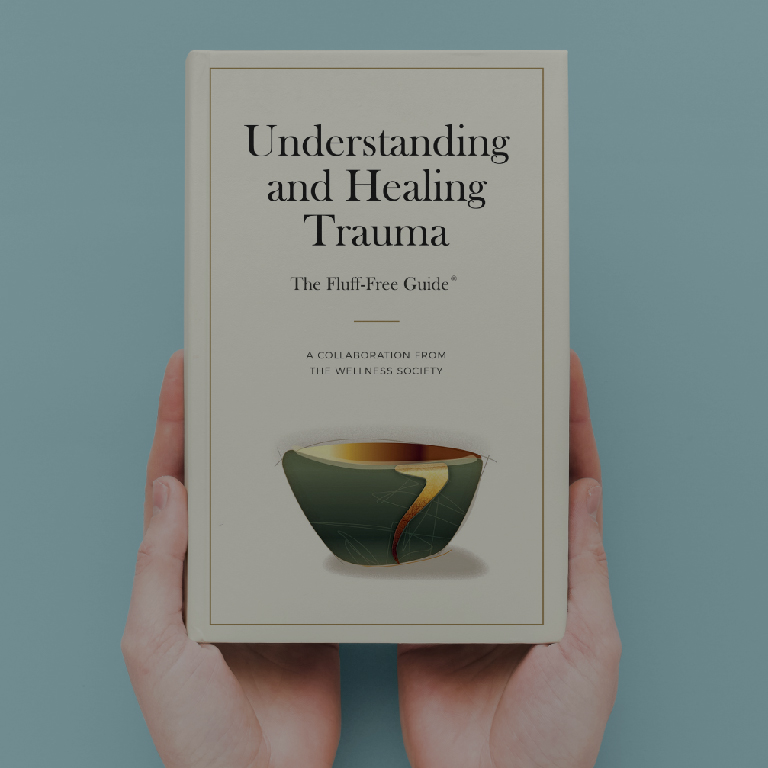Emotional neglect is a subtle, yet devastating form of child maltreatment, one that frequently eludes detection, remaining unseen by those not directly involved in the child's immediate circle.
It leaves an indelible mark on a child's psyche, with repercussions that echo not just throughout their childhood, but continue to resonate deep into adulthood, profoundly impacting the formation of their identity.
An environment laden with emotional neglect shapes the landscape of a child's internal world in a distressing manner. The child's self-concept—their understanding of who they are and their value—becomes critically distorted.
This alteration extends to their perception of themselves, influencing their interpretation of their place in the world.
The lack of emotional nourishment and understanding erodes their self-worth and distorts their self-image, an effect that can sadly last a lifetime.
Understanding Emotional Neglect
Imagine being a child once again. Now imagine trying to navigate through the world with the complex spectrum of emotions that come with it, all while feeling profoundly alone.
This is the sad reality for a child experiencing what is defined as emotional neglect. They will carry with them a dark shadow cast by the very individuals meant to be their beacon of light – their caregivers.
Using the same example, picture this child now being in distress, their emotions swirling within them. They reach out, seeking comfort, but there's no one there to guide them, to hold their hand through the storm. Instead, they’re left alone to weather the emotional chaos, just as a ship without a compass would on a turbulent sea.
Now, envision the most vulnerable moments in your life as a child that you needed support with, but the only response you encountered is a vast, silent void. Would you feel overlooked, misunderstood, and isolated? This example nurtures the seeds of loneliness and rejection in the young heart of a child.
Imagine the scenario where the child seeks connection, stretches out their hand to their caregiver, only to be met with a cold rejection. This lack of engagement turns their vibrant world of emotions into an alien landscape, leading to confusion, self-doubt, and insecurity.
This child whose emotional environment is insecure, one in which they're constantly on edge and never feeling safe enough to express their emotions openly. They’re now experiencing constant unease and apprehension. This becomes a pervasive backdrop for their everyday life.
The story painted here isn't a mere flight of fancy. It's a crucial call to recognize and define emotional neglect. The emotional health and development of a child depend on the support and validation they receive from their caregivers. This isn't merely important – it's pivotal.
Every child deserves to feel heard, seen, and emotionally secure.
Origins of Emotional Neglect
In a manner both engaging and insightful, we can unravel the roots of this intricate issue, painting a fuller picture of its origin.
Reflect for a moment on a caregiver who, as a child themselves, experienced emotional neglect. Now in the role of a caregiver, they unintentionally echo the same pattern of neglect with their own charges, perpetuating a cyclical dance of disregard that spans generations.
Similarly, let's consider caregivers grappling with their own mental health issues or entangled in the snare of substance abuse. These struggles cast long shadows that add intricate layers of complexity to their caregiving environment, further fuelling the potential for emotional neglect.
Then, there are the external demons – persistent stressors that gnaw incessantly at the caregiver's resilience or the harsh realities of poverty that demand so much attention, leaving little room for emotional nurturing.
These, too, shape the environment into a crucible ripe for emotional neglect. Together, these factors weave a complex web that encapsulates the many faces of emotional neglect.
Understanding these origins is a vital step in breaking the cycle and creating a more emotionally nurturing environment for our children.
Long-Term Consequences of Emotional Neglect
The long-term psychological effects of childhood emotional neglect are profound and varied.
These may encompass reduced self-esteem, being emotionally unavailable, and in some instances, suicidal ideation. Consequences can also manifest in an unhealthy relationship with food and substance abuse.
The effects of emotional neglect often extend to interpersonal and professional realms, leading to challenges in forming and maintaining relationships, as well as difficulties in academic or work settings. It's crucial to recognize and address these issues as early as possible to support healing and healthy emotional development.
The Influence of Emotional Neglect on Attachment Styles
Emotional neglect can also impact a person's attachment style, which is the way they relate to others.
People who were emotionally neglected as children are more likely to develop insecure attachment styles, such as anxious attachment, avoidant attachment, or disorganized attachment.
Consider Lucy, who experienced emotional neglect throughout her childhood. As she grows, Lucy often finds herself anxiously clinging to relationships. She constantly seeks reassurance and validation, afraid that those she cares about will leave her. Despite being in a loving relationship, she often imagines her partner is on the brink of abandoning her, causing her frequent emotional distress. This illustrates an anxious attachment style, which can stem from emotional neglect.
On the other hand, consider Tom. Just like Lucy, Tom was emotionally neglected during his formative years. However, his response to this neglect manifests differently. Tom often appears detached in his relationships, seeming indifferent to the idea of close emotional connections. Even when he's dating someone, he keeps an emotional distance, preferring his independence over intimacy. This pattern reflects an avoidant attachment style, another possible outcome of childhood emotional neglect.
Both Lucy's anxious attachment and Tom's avoidant attachment patterns are examples of insecure attachment styles. They demonstrate how emotional neglect in childhood can significantly impact the way individuals form and manage relationships in adulthood.
Emotional Neglect Coping Mechanisms
People who were emotionally neglected as children may develop maladaptive coping mechanisms to deal with the pain and distress they experienced.
These coping mechanisms can include:
- Perfectionism: Striving for perfection can be a way for those who were emotionally neglected to seek validation they didn't receive in their formative years. The constant need to be perfect could be a response to feelings of inadequacy or a fear of rejection.
- Workaholism: Throwing oneself into work can be a form of escape from unresolved emotional distress. By focusing excessively on work, they might be trying to distract themselves from the lingering effects of the emotional neglect they experienced in childhood.
- Unhealthy Relationship with Food: Emotional neglect can lead to a distorted sense of self-worth and body image, potentially leading to problems around food. The act of controlling food intake or purging can give a sense of control they might not have felt in their emotional lives.
- Sex Addiction: Those who have experienced childhood emotional neglect might struggle with forming healthy, intimate relationships. As a result, they might seek physical intimacy in an attempt to replace or suppress their unmet emotional needs, leading to potential sex addiction.
- Love Addiction: Also understood as codependency, love addiction is a pattern of seeking excessive approval, validation, and love from others. Emotional neglect can create an emotional void or emptiness within an individual. In search of filling this void, they may seek intense relationships or romantic partners who they hope will provide the emotional support and validation they lacked in childhood.
- Substance Abuse Issues: In the face of emotional neglect, a child may grow up feeling isolated and unsupported. As an adult, they may turn to substances like drugs or alcohol as a form of self-medication to numb the pain or fill the emotional void they've been carrying.
- Self-Harm: Some individuals resort to self-harming behaviors as a cry for help or as a way to physically manifest the emotional pain they've been silently bearing. This could be a deeply ingrained response to the lack of attention or care they received as children.
These coping mechanisms are often unconsciously adopted as ways to manage the distress stemming from childhood emotional neglect. However, it's important to recognize that they are maladaptive, meaning they do more harm than good in the long run.
Breaking the Cycle of Emotional Neglect
Self-help and therapy can help people develop healthier coping strategies and work towards healing.
Here are some self-help tools you may find helpful:
- The Mental Wellbeing Toolkit
- Understanding and Healing Trauma eBook
- The Emotional Availability Journal
You must demonstrate self-compassion towards yourself. Visualize yourself gently tending to a seedling, but instead of a plant, you're nurturing your own bruised inner child.
Bestowing kindness and understanding upon yourself fosters healing, soothing the lingering sting of emotional neglect.
Equally crucial is the development of emotional literacy. Imagine acquiring a new language, a tongue that empowers you to identify, articulate, and express your emotions in a healthy manner. This newfound capability not only mends your emotional health, but also bolsters your relationships.
Above all, remember that the shackles of emotional neglect can indeed be shattered. It's a journey, a step-by-step, day-by-day transformation.
Each stride you take is a leap towards a healthier, emotionally richer version of yourself.
Summary
In the grand tapestry of life, emotional neglect in childhood can appear as a disheartening thread. However, as we’ve explored, it doesn’t have to dictate the entire design. With time, understanding, and conscious efforts, the impacts of emotional neglect can be addressed and overcome.
Embracing self-help, therapy, cultivating self-compassion, and enhancing emotional literacy are not just strategies – they’re lifelines leading to healthier emotional landscapes.
They help transform wounds into wisdom, pain into power, and past neglect into future nurturing.
Remember, each journey begins with a single step. And every step you take, no matter how small, is a testament to your strength and a stride towards your emotional well-being.
The process might seem daunting at first, but rest assured, there is a world of resources, professionals, and communities ready to lend their support. In the end, the journey to overcome emotional neglect isn't just about healing the wounds of the past. It's about cultivating a future where emotional health and secure relationships flourish.
It's about reweaving the tapestry of your life, replacing the threads of neglect with those of nurture, care, and self-love.
Trauma-Informed Self-Guided Support for Mental Health
Research shows that self-help materials are often enough for people to overcome mild to moderate mental health difficulties without professional support.
If you’re interested in a trauma-informed self-guided program, be sure to check out The Mental Wellbeing Toolkit.

About Megan
Megan Corrieri is a nationally certified LPCC with 15+ years of counseling experience.She has expertise in treating various mental health issues such as anxiety, depression, sexual addiction, and offender rehabilitation, for both individuals and couples.
Megan owns and operates NorthStar Counseling and Therapy, a private practice located in Frisco.



